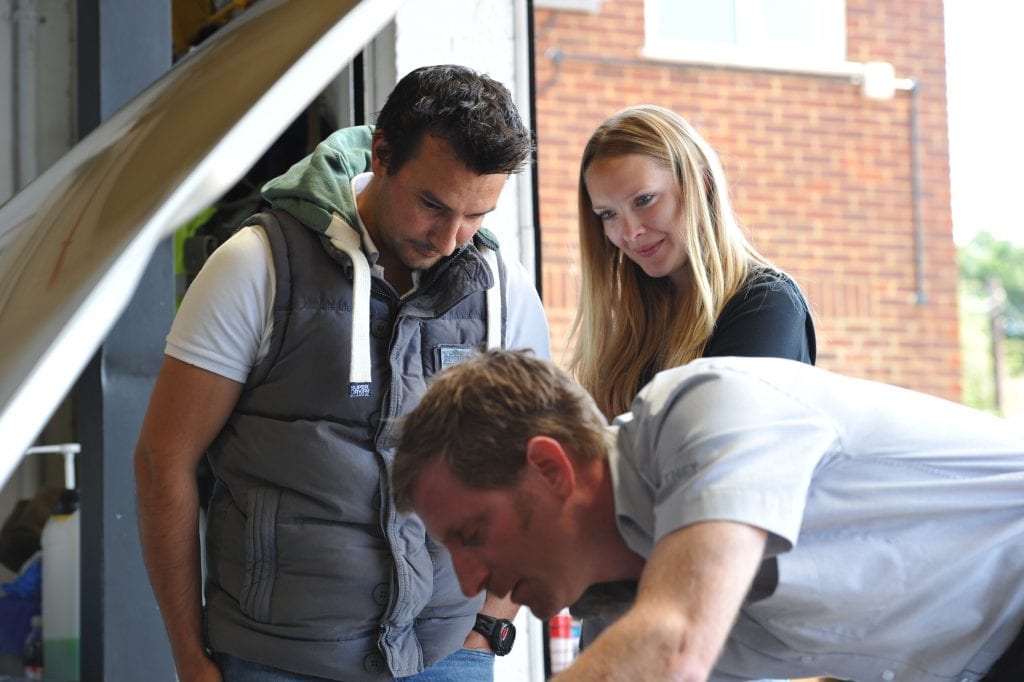
According to research by MotorEasy, nearly half of motorists (47%) feel they’ve overpaid for car repairs because of confusing jargon used by mechanics.
Drivers hearing their ‘big end’ has gone or they’ve got ‘mayonnaise’ under their oil cap is causing them to lose faith in their garages.
MotorEasy is calling time on confusing mechanic jargon with the launch of its new ‘Lost in Translation’ campaign to promote “plain English” in car garages.
The company believes it is even worse for women with baffling workshop lingo causing a third (32%) of female drivers to stop using a garage because they felt they were being taken advantage of due to their gender.
Garage mechanics apparently remain one of the least trusted professions in the UKbecause consumers are left flummoxed by the terms used by technicians and feel obliged to stump up for parts or work – even though they don’t know what they’re paying for.
Car ownership and maintenance service MotorEasy, wants garages to ditch the jargon and use ‘plain English’ to win owners’ trust back.
The firm’s light-hearted ‘Lost in Translation’ campaign has been launched to highlight the amusing absurdity of garage jargon, but also the more serious issue of consumer trust in car workshops.
Some examples include:
| Jargon term | Meaning |
| Your big end has gone | A large bearing (semi-circular sleeve of metal inside the engine) has worn out and failed. This usually results in further damage to other parts of the engine. If the big end is worn, it can make a loud knocking noise, especially when you accelerate |
| Excessive play | Not as fun as it first sounds, this is typically used in connection to steering or suspension parts and refers to excessive movement of a part that is either moving more than it should or moving when it shouldn’t do so at all |
| Your bushes on the wishbone are going | Bushes are the little rubber parts attached to suspension parts, including the triangular components called wishbones; because they are rubber, they can perish and wear out. They aren’t an expensive fix however, so bear that in mind |
| You’ve got mayonnaise under your oil cap | If water or condensation under the oil cap mixes with engine oil, it creates a thick, white-coloured gunk that collects there; this could indicate that there’s an issue with the head gasket, which is quite a serious problem |
| Spongy brakes | There isn’t much resistance when the brake pedal is depressed, indicating that the brakes aren’t working properly, usually due to a lack of brake fluid |
| I need to access your CAN-bus | Jargon term for the electronics system that allows the vehicle’s engine management computer to ‘talk’ to other parts of the car |
MotorEasy founder, Duncan McClure Fisher, said: “Garage mechanics are among the worst around for using phrases and terms that may make sense to them and may even be technically correct, but which mean nothing to the casual car owner.
“While some garage customers may be bold enough to ask for an explanation, the majority are very British about it and will simply accept what they’re being told, trusting that the technician knows best.
“The problem is that this trust is open to abuse and unscrupulous garages could even use jargon to deliberately confuse their customers and even get them to part with more cash unnecessarily.”
MotorEasy’s ‘Lost in Translation’ campaign has been launched to highlight, in a comedic fashion, how workshops could take simple steps to improve the relationship they have with customers and increase customer loyalty as a result.
For a full list of garage jargon terms, to contribute your own jargon, see the rest of the Lost In Translation campaign and visit: www.motoreasy.com/lost-in-translation




You must be logged in to post a comment.